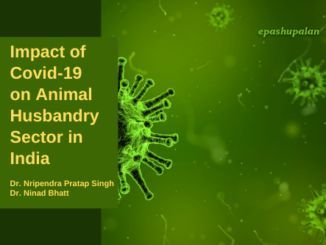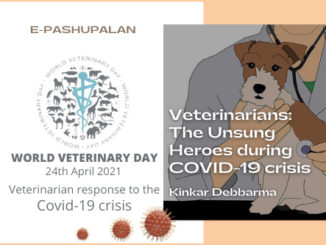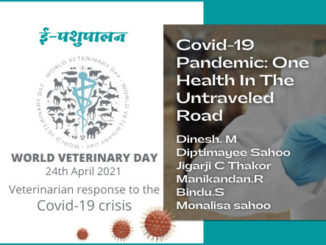Introduction
Coronavirus disease (COVID-19) has been the talk of globe for about last 15 months. It is an infectious disease caused by a newly discovered coronavirus. Most people infected with the COVID-19 virus experience mild to moderate respiratory illness and recover without requiring special treatment. Older people, and those with other co morbidities like cardio vascular diseases, renal problems, diabetes, asthma etc. are more likely to develop serious illness. Most of the fatalities so far have been seen in this vulnerable group only. The COVID-19 virus spreads primarily through droplets of saliva or discharge from the nose when an infected person coughs or sneezes. The best way to prevent and slow down transmission is to be well informed about the COVID-19 virus, its pathogenesis, transmission and prevention measures. Simple measures of personal hygiene like washing hands, using an alcohol based rub frequently, using face mask and not touching face are the gold standard control and prevention measures against COVID 19. So it’s important that to follow these measure along with habit of social distancing i.e. avoiding to visit crowded places and maintaining physical distance whenever visit is unavoidable. The COVID-19 pandemic has put up a plethora of challenges against mankind. Being a highly contagious disease, the imposing of lockdown/curfew was considered a vital necessity by governments. But, it led to closure of many small scale ventures which rendered thousands and millions of labourers/workers jobless and national economy nosedived with negative growth numbers. The migrant workers were seen walking bare foot for hundreds of kilometers, to return to their native villages in this time of national emergency. The union and state governments have uphill task of rehabilitating these returnees by providing them livelihood and food security and also bringing the economy back on positive growth track.
Role of Veterinarians in combating COVID 19 crisis
The veterinarians or vets in short, are the graduates in Veterinary and animal science, having the primary job responsibility of diagnosing animal’s diseases, treatment and execution of various animal husbandry development programmes. They are also tasked with important role of farmer’s awareness about different aspects of scientific livestock farming. The Veterinary Officers (Vo’s) or Veterinary assistant surgeon (VAS), different designations in different states, have more or less same set of job profile and contribute significantly to growth of livestock sector in their respective states. The upsurge of COVID 19 pandemic has underscored the multidimensional role of veterinarians in the society. The important contribution of veterinarians to COVID 19 crisis can be discussed in terms of following job roles:
Awareness/ Tackling rumor’s
One of the major challenge in tackling in any national emergency (flood, earth quake, pandemic etc.) is to control rumors’ and keep general public abreast with correct and latest news or information. Indian poultry sector was badly hit because of the rumor, that eating poultry products may lead to corona virus infection, and it led to great financial loss to affected farmers. Majority of livestock farmers in India are small and marginal farmers, practicing farming on sustenance basis only. So, such rumor’s can completely devastate small enterprises. It is the imperative duty of the veterinarians to keep farmers and consumers vigilant about such false notions and rumor’s. Conversely, eating animal source proteins, may contribute to developing innate immunity among individuals, which can further help in fighting any infectious disease.
Maintenance of Supply chain
Farmers rear livestock mostly to reap benefits by selling animal based foods to potential consumers. Most of these products particularly dairy products, include the essential items of food basket of the consumers. The production and disposal of these products require maintenance of supply chain both ways i.e. towards supply of inputs for production and towards marketing of final produce. E.g. For milk production, supply of fodder, veterinary services, concentrates Feed, and medicines are necessary. Similarly, for its marketing, collection, processing and transportation line needs to be maintained efficiently. Veterinarians have to play a proactive role in ensuring smooth running of production and consumption supply chains, to prevent any chaos in the sector. It will not only help in delivery of essential commodities to the consumer but also ensure livelihood security to poor farmers, who always remain on receiving end of such disasters.
Employment generation/Livestock Entrepreneurship
COVID pandemic forced a large chunk of human population, mostly poor labourer or small workers, to reverse migrate (Usually in normal times, migration takes place from rural to urban areas) from urban/metropolis to rural areas. A significant proportion of them have lost their urban livelihood sources permanently and are looking for alternative sources of employment in the villages itself. Obviously, agriculture and allied sectors are the front runner options available with them. Among these options, livestock farming suits best to many because of lesser input requirements and better returns. Livestock farming can be comparatively started on a smaller piece of land with smaller capital and getting returns in a shorter span of life. But, the livestock farming requires basic capacity building about animal management, to make it more rewarding and profitable. Veterinarians role in, guiding and ushering them about various livestock farming avenues, proving technical support, market support, credit facility and government grants & subsidies, is the most important factor in determining success of livestock enterprises. So, veterinarian’s active role as extension workers will ensure a sustainable source of income to many migrant labourers (marginal and landless farmers also) and contribute significantly to their livelihood security and successful rehabilitation.
One health
One Health’ is an approach to designing and implementing programmes, policies, legislation and research in which multiple sectors communicate and work together to achieve better public health outcomes. The important areas of work include food safety, the control of zoonoses and combatting antibiotic resistance (World Health Organization). The veterinarians have great role to play in these areas. Firstly, the goal of safe food security for all cannot be achieved without the involvement of veterinarians. A great proportion of the human food comes from animal sources e.g. milk, meat, eggs etc. these high value foods cannot be produced in sufficient quantity and with good quality without the provision of veterinary service. Secondly, the zoonotic diseases can never be controlled effectively, if, veterinarians are involved in the programme implementation. It is pertinent to mention here that 60 % of existing infectious diseases and 75% of emerging/re-emerging diseases are zoonotic in nature (World Health Organization). Thirdly, antimicrobial resistance, has some roots in veterinary sector also. Indiscriminate use of antibiotics in animal sector, poses a threat to human health via food chain/web. So, veterinarians must thrive hard to work on these lines to ensure availability of safe animal based food for all, control of zoonotic diseases and combating anti-microbial resistance.
Assistance to medical sector (Emergency services)
The large population and insufficient medical facilities is a long coming challenge in India. The situation got worsened in the wake of spread of COVID 19 pandemic, particularly in the mid-2020, when the incidence graph reached plateau. Veterinarians, by virtue of their equivalent knowledge about medical science, terms and procedure, can assist medical professionals in providing health care facilities to common man. It has also been demonstrated in different institutes pan India, whereby Veterinarians are conducting RT-PCR assay, a confirmatory test for COVID diagnosis. Except very critical cases, the treatment of COVID corresponds to that of normal flu/ common cold. In case of emergency/manpower shortage, veterinarians can be tasked with preliminary level check-up, medication and supervision. So, in gist, vets can help the medical fraternity in combating this pandemic by assisting in sampling, disease diagnosis, general check-up, supervision etc.
Conclusion
Although, COVID-19 pandemic is on downward trend now and mass vaccination drive is getting momentum day by day, still the damage has already been to agriculture and allied sector. To ensure V shaped growth of sector and accommodate the jobless reverse migrants, veterinarians have to be recognized and supported. Livestock sector has huge potential in addressing economic crisis component of this crisis and veterinarian are the front line warriors of this sector. Assistance to medical fraternity in ensuring one health concept, working for successful rehabilitation of agriculture labourers and leading the sectoral growth graph upwards, will be the true contribution of Veterinarians to national service in these testing times and hours of dire need.






Be the first to comment